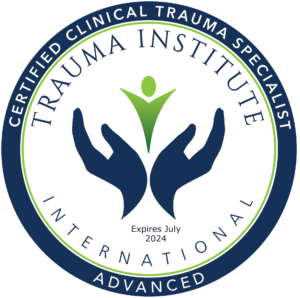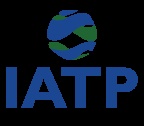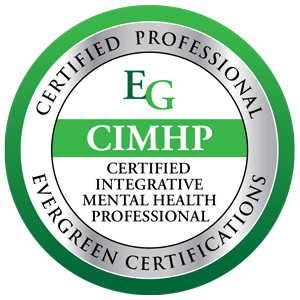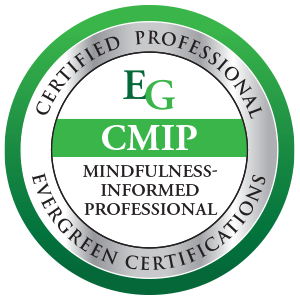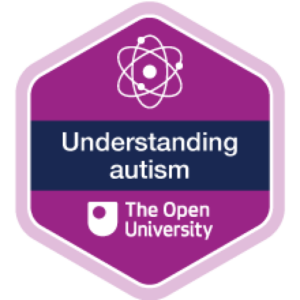Personal Trauma including Childhood, sexual and domestic trauma and violence (C-PTSD)
Trauma is very personal in both the experiences that can form it, and the effects it has on us. Therefore the effective therapeutic response needs to be adaptive, flexible and sensitive to the individual experience of the client.
The NICE (National Institute for Clinical Excellence) guidelines for PTSD and C-PTSD treatment can be found HERE
DO NOT consult a non specialist therapist or any therapist proposing immediately addressing the trauma with any form of regression (including hypnosis, shamanic processing or EMDR) without the required initial stage preparation, and do not agree to Trauma Debriefing! A full explanation can be gained from reading the NICE guidelines on safe practice (link above).
The methods used by Stuart are part of a “manualised” (tried and tested) trauma treatment method as required by NICE, and it should be noted at the end of the above linked document NICE clearly define a suitable practitioner for treating trauma as: “A person with mental health training, particularly in PTSD, who also has training and competence in delivering interventions for PTSD“. In other words it is not enough just to be a “counsellor”, “therapist”, “coach” etc, you should have specific specialist training in Trauma work.
Stuart is a Certified Trauma Specialist:
- Certified in Trauma Specialism ACCTS (upgraded from CCTS-I)
- Certified in Complex Trauma and Dissociative Disorders CCTP-II
- Certified in Specialised use of Hypnosis, Neurology, and Mind-Body Work in treating Trauma.
- Certified in Functional Medicine for Trauma Clients CFMTS
Personal Trauma Developmental effects
As we develop and learn through the stages of life we are designed to learn certain lessons that make up our behaviours and perceptions. When we experience trauma we adapt to meet the unusual challenges of that, and instead of learning more standard lessons, we learn survival lessons. This is necessary in order to survive the trauma, but leads to dysfunction and problems later.
Psychological effects of trauma
Often people hear reference to, or have a diagnosis of Post Traumatic Stress Disorder, but there are a few variations on this label. Essentially diagnosis with PTSD or similar reflects the fact that the client is suffering from classic outcomes of trauma, such as fear, anxiety, depression, flash backs, relationship issues, functioning issues, interpersonal difficulties and sleep difficulties (not an exhaustive list).
Typically effects include:
- Affect regulation issues: the inability to handle attachment and self soothing situations where ideally one might normally move past fear, and make oneself feel better. This turns up as fear, anxiety or depression.
- Self esteem: Without the right attachment and soothing experiences one may not develop a positive self esteem.
- Relationship issues: With trauma and disruption, attachment and self esteem issues impact on one’s ability to maintain healthy relationships.
Also narrative wise there tends to be: (according to Donald Meichenbaum, PhD, one of the founders of cognitive behavioural therapy, is distinguished professor emeritus at the University of Waterloo in Ontario.)
- Negative story line or narrative
- Guilt or other negative self esteem
- Negative expectation of story going forward
- Illogical thinking, or logical gap thinking
- Tendency to have a philosophical or faith support mechanism
In other words a pessimistic outlook and expectation.
Treatments for trauma
Please be aware that recently, 2019, a number of psychology research orientated groups have tried to grab at this area. Please do not listen to simplistic treatments.
Treatment most neatly is described as being on traditionally three levels, but in the Arizona Trauma Institute and CBASP models there are four, stage “1” being the added level:
- Pre therapy process – learning safety and trust with therapist and therapy setting. Without this the therapist and the clinic will actually be seen as potential threat.
- Function – Stabilise and learning to self regulate
- Recovery – complex patterns, narrative, somatic processing
- Reintegration – life after trauma
Level 1
Pre therapy involves building rapport, basic trust and crucially safety protocols for both the clinic environment, and to use “at home”. these map to the NICE guidelines for C-PTSD and anxious survivors.
Level 2
Function enables the client to better function day to day, in all the ways we expect to as members of society. Mindfulness, relaxation therapies, cognitive behavioural therapy, cognitive behavioural hypnotherapy and related methods such as MBSR, EMDR and MBCT can all assist initial functioning. . This phase also requires functional therapy assistance to address diet, nutrition and lifestyle and other co-morbid conditions. A range of methods from Naturopathy and Neurology can be combined to ensure the physiological component is addressed.
In this first stage a key function is learning to self regulate, that is to say, to be able to “handle” negative emotions, not remove them, but be able to self calm when negative emotions are present. This is key to recovery since in a state of self regulation it is NOT POSSIBLE for conventional talking therapies to enable change because the higher functions of the brain are simply not functional in a state of dysregulation or panic. Also while dysregulated, it is HARMFUL to embark on methods like hypnotic regression or EMDR, since this will retraumatise and not create healing at all. Key methods here are Mindfulness based self regulation methods, methods from Polyvagal Neurology and Interpersonal Neurobiology and calming self hypnosis. Note: Trauma Debriefing is prohibited by NICE guidelines and this reflects the danger of charging into inappropriate memory recall!
Level 3
Recovery is a deeper process that is less about perception and behaviour, and more about deep emotional well being and feelings. Gestalt, Analysis, Psychoanalysis, Hypnoanalysis and long term counselling are all typically used to enable the client to unpick, understand and heal the pain of trauma. Understanding is developed through narrative therapy, addressing interpersonal issues, psycho-education about trauma, and forms of safe exposure therapy. A useful three stage description present in several therapy models including Gestalt and DBT is:
- Self awareness (working out the real detail of what happened emotionally as well as factually)
- Self forgiveness (letting go of complex confusing emotional reactions to having being abused such as anger and guilt)
- Self responsibility (redesigning and moving forward feeling more self empowered)
Level 4
This is post trauma, and includes two main goals – tidying up specific resistant memories causing residual flashbacks using methods like hypnosis, MEMI (from NLP), Soul retrieval processes or EMDR
These stages are not as neat and tidy as they might sound, and there can be a fair amount of moving back through the stages as different facets and issues are addressed.
Changing the narrative to a positive and useful functional story and meaning makes a huge difference in enabling resilience and recovery. According to Meichenbaum, those who survive without trauma have a natural inclination towards this. Those who are effected already have a negative personal narrative because of existing issues.
A comprehensive study of the different main treatments for Trauma by Watkins Sprang and Rothbaum 2018 compared a wealth of research into the various different recommended therapy models, including eclectic (integrative) psychotherapy, cognitive behavioural therapies, interpersonal psychotherapies, desentisation methods like EMDR and even person centred methods (counselling). The results clearly indicate benefits of all the above methods, but what stands out is that trauma is not a “one size fits all” condition. Wahbeh, Senders and Neuendorf 2014 compiled evidence on complementary therapies in regard to treating trauma and found evidence of a number including hypnotherapy being positive. Lynn et al 2012 conclude that Cognitive Hypnotherapy, Mindfulness and Acceptance based treatment approaches are significantly effective with trauma treatment. Leading experts the Arizona Institute of Trauma recommend an integrative approach over 4 stages: Relationship building with the therapist, psychoeducation and self regulation, trauma resolution and monitoring, post trauma growth. Generally after the first relationship building stage a three stage approach to treatment is recommended and is discussed at length in different ways HERE and is discussed in detail in relation to Complex Trauma and Disassociative Disorders by the ISSD HERE
Crucially talking therapy alone is not effective, and complex cognitive processes like CBT and narrative based therapy will not work until the neurological state of the client is stable and regulated. Regression or EMDR may also cause increased distress until self regulation is learnt. Neurofeedback and somatic type processes are then highly effective as a supplement to “talking therapy”. This is discussed at lenght in : Gerge Anna (2020) “What neuroscience and neurofeedback can teach psychotherapists in the fieid of complex trauma: Interoception, neuroception and the embodiment of unspeakable events in treatment of complex PTSD, dissociative disorders and childhood traumatization”.
European Journal of Trauma & Dissociation, Elsevier.
Stuart is an Advanced Certified Clinical Trauma Professional (ACCTS) and Complex Trauma and Dissociative Disorder Professional (CCTP-II), and is also certified in the specialist use of Hypnosis, Neuroscience and mind/body approaches in Trauma treatment. Stuart is a widely qualified psychotherapist, analyst, therapist and hypnotherapist. Stuart is registered with the CNHC (who hold a PSA AR) under Hypnotherapy. He has several competency certifications in Clinical application of Mindfulness for Clients and Groups and Specialist Certification in Mindfulness.
Stuart is neuro-divergent and is trained in additional specialist knowledge for the treatment and management of C-PTSD clients who are also ASD or ADD.
Key Words
Trauma, Grief, Abuse, Domestic violence, childhood abuse, childhood violence, psychological abuse, emotional abuse, gas lighting, PTSD, post traumatic stress disorder, co dependency, emotional violence, moving on from trauma, moving on from abuse, psychotherapy, psychoanalysis, Gestalt, Mindfulness, DBT, CBT, CBASP, CBA, CBH, hypnotherapy, hypnoanalysis, analysis, psychotherapist, psychoanalyst, hypnoanalyst, hypnotherapist, Edinburgh, Glasgow, Falkirk, Scotland


